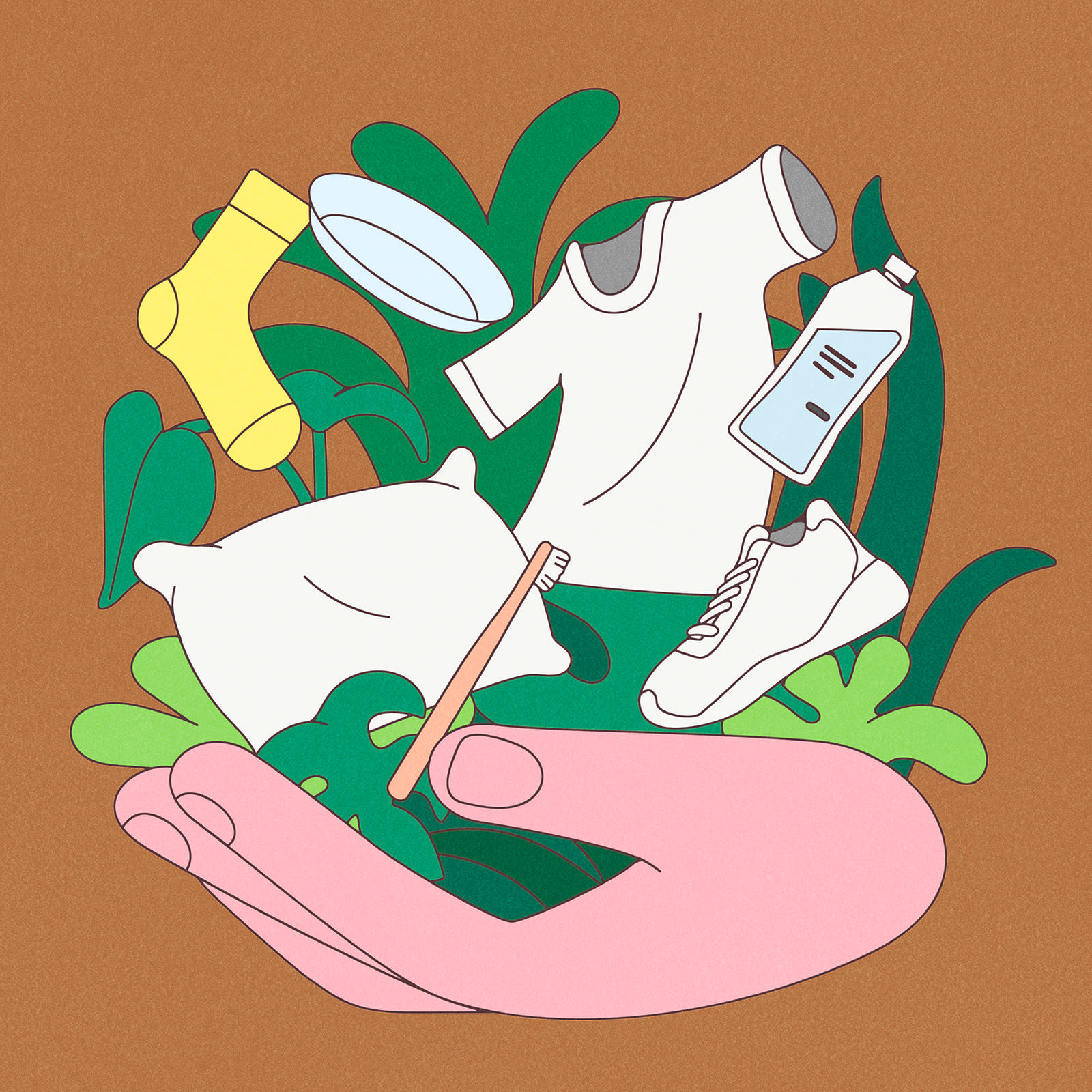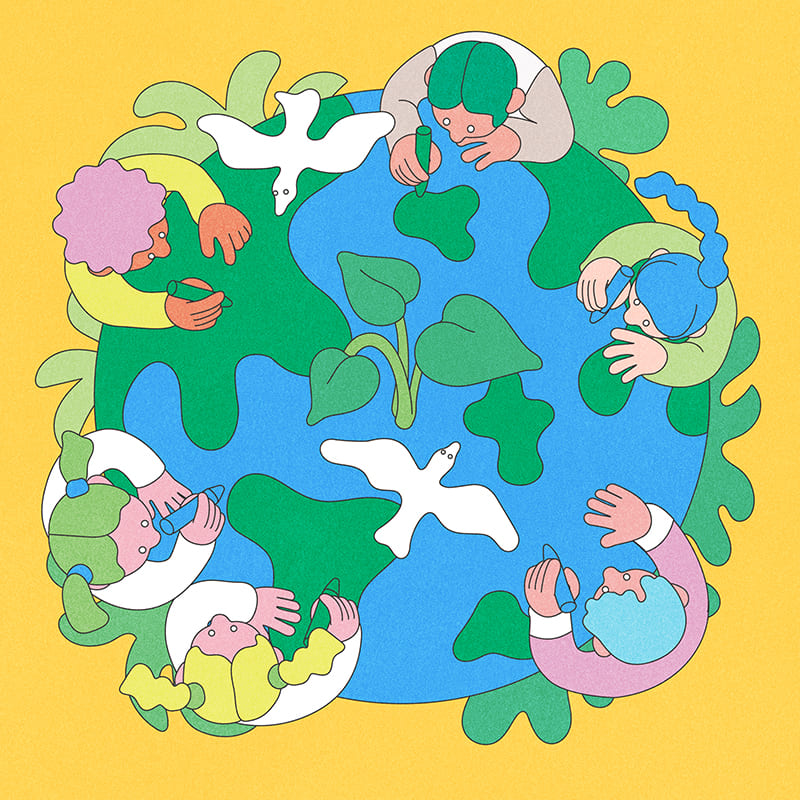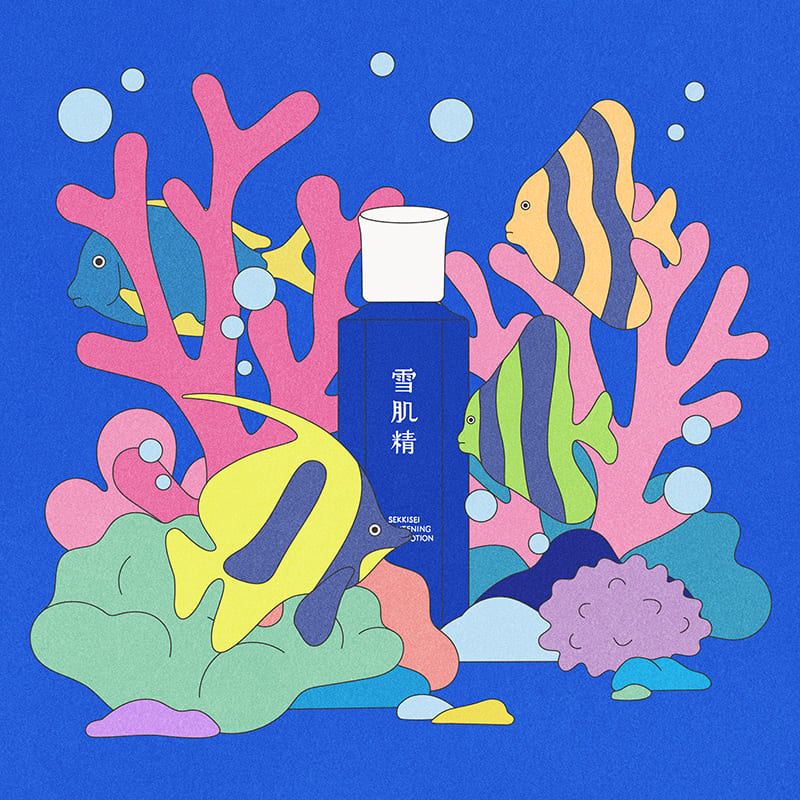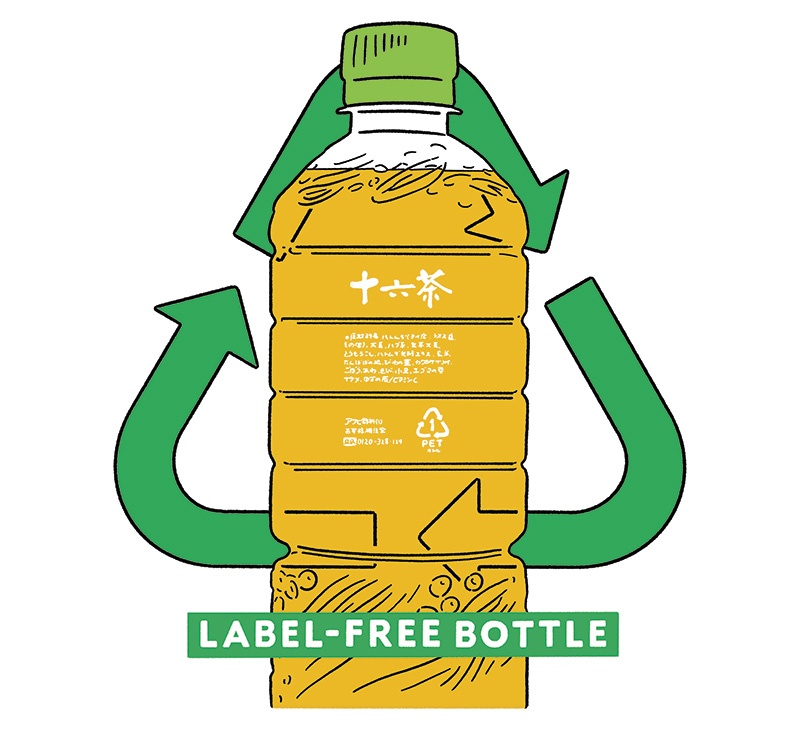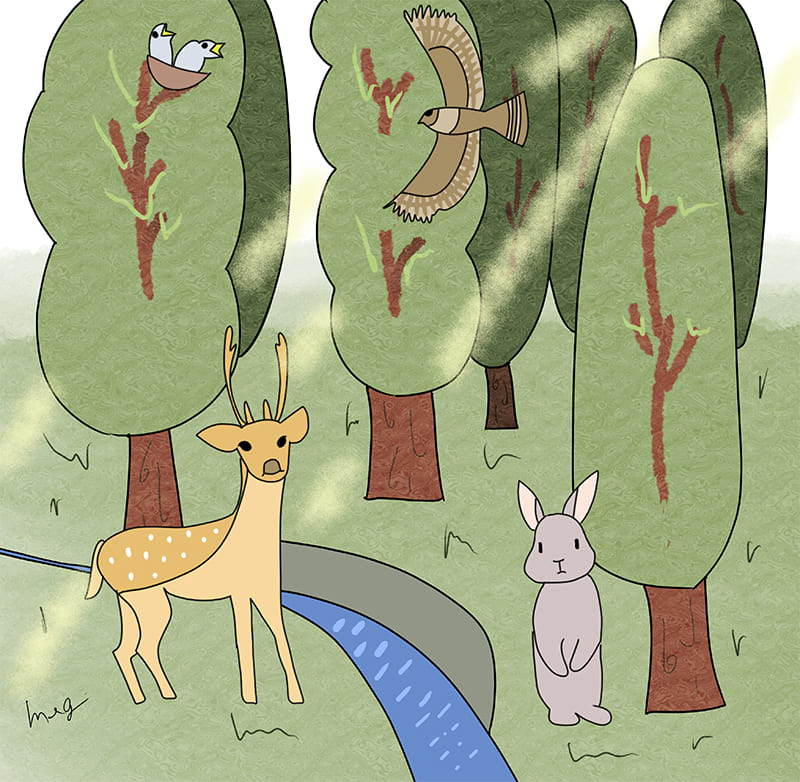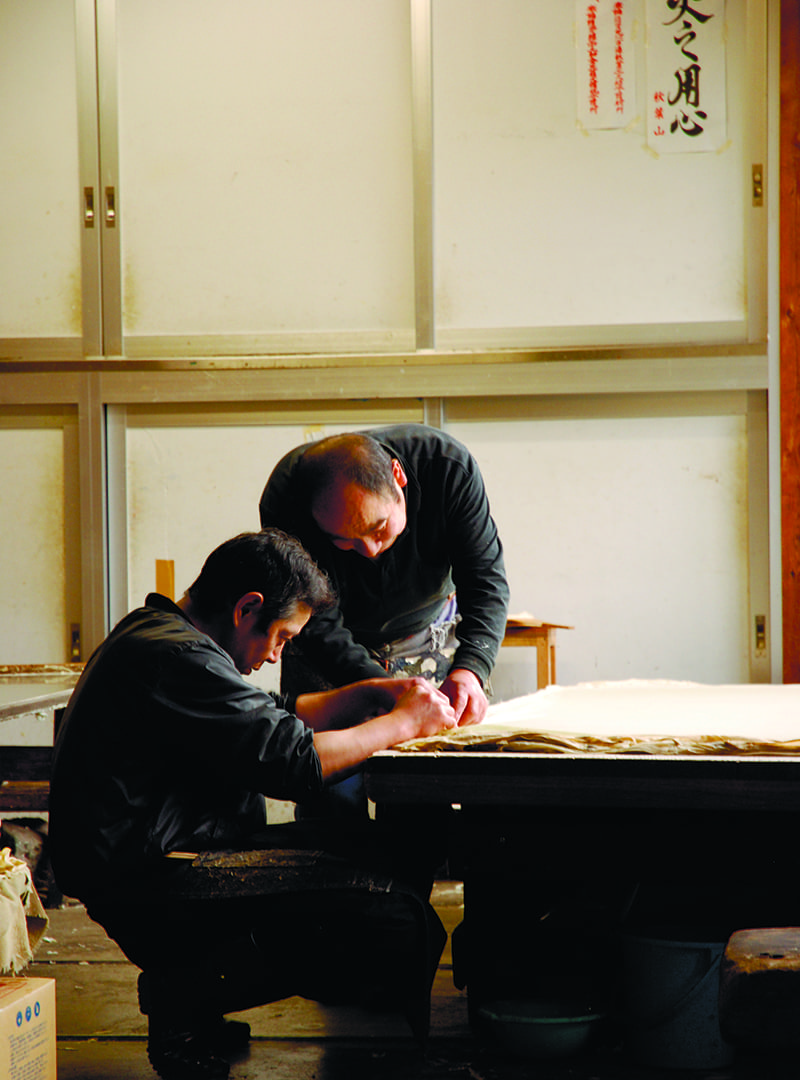December 20, 2024
Unicharm recycles diapers back into diapers
VOL. 14: Unicharm Corp.
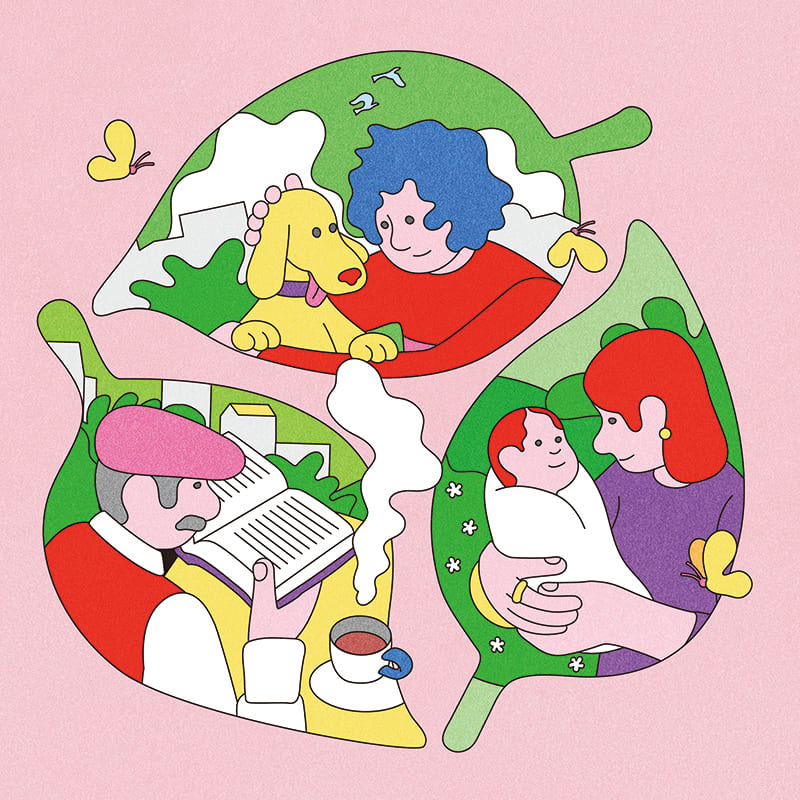
Unicharm’s strong points
1.Has set itself the mission of realizing a “cohesive society” while helping to achieve the U.N.’s sustainable development goals
2.Made CDP’s A List in both forests and water security in 2023
3.Began trialing the horizontal recycling of diapers in 2015
4.Commercially introduced the world’s first horizontally recyclable diapers

Many companies claim to contribute to a circular economy, but only a few have actually realized horizontal recycling of discarded products into the same items. Unicharm Corp., a Japanese maker of daily necessities, is one of them.
The company tops the Japanese markets for disposable diapers and feminine sanitary products and is aggressively expanding in more than 80 other countries and regions in Asia, Oceania, the Middle East, North Africa and more. Unicharm’s annual sales are approaching ¥1 trillion ($6.6 billion), with overseas sales accounting for 67% of the total.
It is renowned as a progressive company active in efforts to help achieve sustainability.
In its 2030 environmental targets announced in May 2020, it pledged to reduce manufacturing emissions of carbon dioxide by 34% over the decade, and its 2050 corporate vision aims to make that 100%. It is making steady progress, having already achieved a 55.4% reduction in 2023 from the 2016 level.
In October 2020, the company announced medium- to long-term environmental, social and governance (ESG) goals, dubbed Kyo-sei Life Vision 2030 (“kyōsei” means coexistence), in which it outlined a clear commitment to addressing broad social issues including the aging population, poverty and gender issues.
The international nonprofit CDP regards Unicharm’s efforts highly, putting it in the A List — the highest rating — for both forests and water security last February, and giving it an A-minus rating for its efforts to disclose information related to climate change.
What should be appreciated more than anything else, however, is that Unicharm was the first to achieve the feat of the horizontal recycling of diapers.
Use of ozone
“We are the only company in the world working on the horizontal recycling of diapers, and we actually incorporated it into our business operations this year,” Unicharm President Takahisa Takahara said. “You can say we are at the cutting edge in this endeavor.”
Takahara, appointed in 2001, is a member of the second generation of the founding family. He has been the driving force behind Unicharm strengthening efforts for overseas expansion and stepping up sustainability initiatives (see the article in the box).
Unicharm’s flagship disposable diapers come in a broad range for infants, adults and pets. In Japan, where the population is aging, demand for such products for adults is growing. Those for infants are increasingly finding users in emerging economies where the population is growing.
However, paper diapers, which come in direct contact with the skin, have mainly been regarded as disposable rather than recyclable. They are made of complex layers of nonwoven fabrics, waterproof film, paper pulp and superabsorbent polymers, and so are difficult to break down and recycle. No one seriously thought of recycling them — until Unicharm dared to take up the challenge.
It all started around 2010, when two engineers began a project to develop a way to somehow recycle disposable diapers horizontally. Yet even if they succeeded in separating the materials, cleaning them would be a high hurdle to clear. Still, Takahara supported them, putting the project directly under him. What drove him was a sense of crisis that society and consumers might abandon the company if it continued to be perceived as a maker of products that only consume resources, and that the company therefore needed to shift its business model.
After repeated trial and error, it came up with a unique sterilization technology that involved bleaching and deodorizing with ozone.
The strong oxidizing power of ozone leaves the paper with the same quality as the original pulp, and when used at the appropriate concentration it all turns into oxygen during processing, making this a truly sustainable technology. After researchers spent about five years making the technology viable, the project moved on to the next phase.

© UNICHARM
Social implementation
In 2015, a cross-divisional project called Recycle for the Future — RefF for short, pronounced riifu and symbolized by a leaf — was launched to commercialize horizontal recycling.
A major challenge was the collection process, since Unicharm had to solicit the cooperation of local municipalities. It began a test project with the Kagoshima Prefecture city of Shibushi in fiscal 2016.
The city does not have an incineration facility and disposes of waste in landfills, but faces a problem in that there are only limited disposal sites. To prevent issues such as stench and pollution, it separates recyclable waste into 27 types and sends them for recycling. It also separates out food waste and old cooking oil and recycles them into fertilizer and other resources.
Disposable diapers, which accounted for 10% to 20% of the total waste, were buried in landfills. If they could be recycled, that would significantly extend the lives of Shibushi’s landfill sites.
Unicharm set up a test facility in the nearby Soo Recycle Center to work on social implementation. In 2018, the Kagoshima town of Osaki also started to participate in RefF. In 2022, the company successfully commercialized disposable adult diapers using recycled pulp, providing them to Kyushu hospitals and nursing care facilities.
This year, the project entered a new phase. In April, Unicharm expanded its lineup of horizontally recycled products under the RefF brand to include products for children and toilet sheets for cats, and began selling them to the general public at all 68 Aeon Kyushu stores and on Unicharm’s own online store.
Their prices are a bit higher than regular products, but sales have proven brisk. The RefF brand represents about 11% of the sales of the MamyPoko Pants diaper products for children. “More people have bought the products than we had estimated,” Takahara said. “We have a big opportunity.”
The collection of used disposable diapers also has made progress. Shibushi, which had been collecting them on a trial basis through collection boxes at places like community centers, last April began to collect them from across the city, with diaper collection boxes now set up at about 470 garbage collection points.
These collection boxes and their special bags use plastic recycled from diapers. “Using recycled plastics in the collection boxes and the special bags was a challenge because of costs and strength issues,” Takahara said. “But we chose to do it because we thought it would be important to make it visible and make people aware of what we were doing. Things need to become a part of daily life in order to last.”
There are high expectations for the unprecedented service indeed developing into a regular part of people’s lives.

© UNICHARM
Day care facilities
In October 2024, in partnership with Yokohama, Unicharm began providing MamyPoko Pants RefF to all 56 publicly run day care facilities in the city that use the Tebura Toen service of Baby Job Inc. Literally meaning “empty-handed attendance,” it supplies disposable diapers to day care facilities, saving parents from having to bring diapers with their children’s names written on them and day care facilities from having to manage diapers for each child.
The number of day care facilities using the service has steadily grown since its 2019 launch. As of July, Tebura Toen was available at more than 5,200 day care facilities, representing about 13% of all such facilities in Japan, and the number of users had passed 100,000.
This combination of horizontal recycling and subscription service has the potential to make Unicharm’s RefF initiative grow dramatically.
In order to manufacture enough recycled products, Unicharm must first collect enough properly disposed diapers. Cooperation from municipalities is essential for this, but so far they are limited to the two in Kagoshima Prefecture mentioned earlier. Given this, collaboration with Tebura Toen offers the chance of creating used diaper collection points at day care facilities, which dispose of large amounts of diapers. Eventually, Unicharm will turn thousands of day care facilities across Japan into collection points.
At the same time, Unicharm aims to expand diaper collection partnerships to more municipalities, with a target of 10 by 2030. Such partnerships have “many advantages for municipalities that have incineration facilities as well,” Takahara said. “They will help reduce the volume of used disposable diapers, which account for 6 to 7 percent of general waste in Japan. If the volume is reduced, the municipalities can downsize their incinerators. If a municipality can deploy horizontally recycled products, then it can also meet the needs of residents with high awareness for sustainability and a cohesive society.”
“Introducing Tebura Toen helps municipalities to address declining birthrates and support child care,” Takahara said. “Adding the diaper collection program and the provision of recycled products will double or even triple the added value. We think these are going to be very convincing measures for residents.”
Takahara said many municipalities have shown interest in RefF but have difficulty with the cost of collection and disposal, and with convincing residents. Still, given the current trend toward realizing sustainability and a cohesive society, if even a single large city joins Unicharm’s initiative, it may prompt many others to follow suit. That is Takahara’s vision, at least.
Furthermore, although RefF is currently used mainly as a brand to refer to Unicharm’s initiative for the horizontal recycling of diapers, Takahara’s vision goes far beyond that framework.
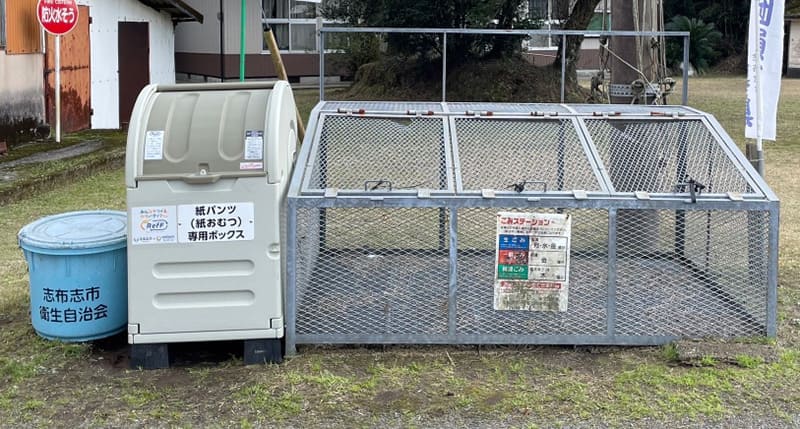
© UNICHARM
Expanding the RefF vision
“We think it’s possible to horizontally recycle feminine sanitary products as well,” Takahara said. “My vision for RefF is to grow it into a brand whose concept allows it to be attached to not only absorbent products such as disposable diapers and sanitary products, but also products such as pet food as well as all kinds of services. RefF is short for Recycle for the Future. My wish is to make it a symbol of a circular economy in our company’s style.”
In fact, RefF is already becoming less and less a brand used only for horizontally recycled products — and has even leaped beyond Unicharm itself.
In October, for example, Oji Nepia Co., a major sanitary paper company, introduced a new toilet paper bearing the RefF brand. Oji decided to put the RefF logo on the packaging because the product is manufactured using power generated from a fuel known as RPF, short for refuse-derived paper and plastics densified fuel, made from disposable diapers collected by Unicharm.
This indicates that the new circular economy that Unicharm is creating — products, services, businesses and everything else involved in the value chain that contributes to realizing the U.N.’s sustainable development goals and a cohesive society — can be labeled RefF.
Does Takahara intend to take Unicharm to the point where it no longer handles products and services that do not qualify under the RefF brand? To this question, he had this to say: “That’s a very good question. Right now, an overwhelming majority of our employees think RefF refers to recycled diapers, but to me, it’s much more than that. If we take the path you mentioned, I think the true meaning and concept of RefF will be more widely understood by our employees and customers.”
The day when RefF evolves into a brand that symbolizes Unicharm itself may not be that far off.
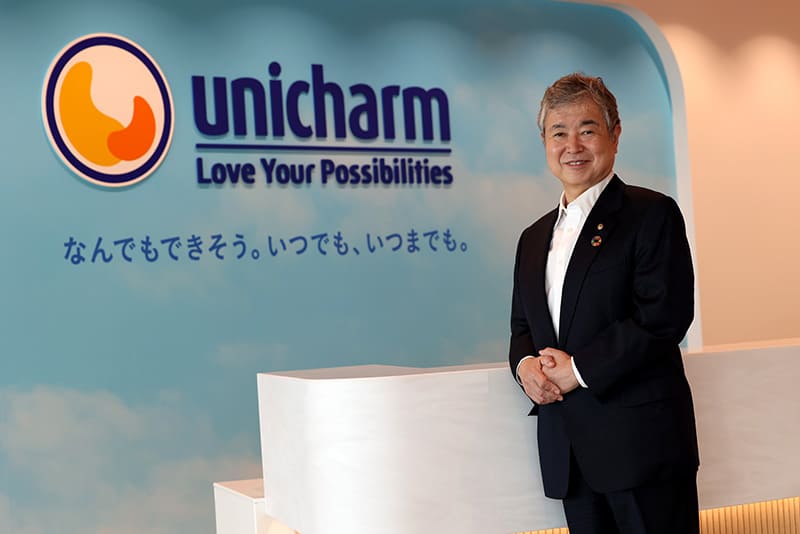
Creating a circular economy is an absolute value
Takahisa Takahara
President and CEO
Under the corporate ideal of pursuing prosperity for both society and the company, we have always remained close to people’s lives, from babies to the elderly and pets. As we believe the U.N.’s sustainable development goals are the very reason for our company’s existence, we decided that realizing the SDGs would be our corporate purpose.
The image of a society in which the SDGs have been achieved is consistent with a world in which we coexist with not just people and their pets but also our society and the global environment. With that thought, we set our mission as “to realize a cohesive society” and worked out specific themes and goals in the Kyo-sei Life Vision 2030” announced in October 2020.
In this context, Unicharm made a circular economy an absolute value as an approach needed to close the gap between the current reality and the realization of a cohesive society.
“Circular economy” generally refers to an economy that circulates resources, but in our case, we aim to not just recycle them but also to create a sustainable value chain while increasing the added value of our products and services.
Now, recycling is costly. If it makes us unprofitable, it is not sustainable, of course. That is to say, it isn’t economically viable unless it creates added value that can absorb its costs, in our view.
That is why we have thought thoroughly about how to increase functions to compensate for cost increases, how to boost consumer motivation and how to address ethical needs in working on RefF, our project for the horizontal recycling of disposable diapers.
We collect disposable diapers, clean them with our ozone treatment technology and recycle their paper pulp and other materials. This technology enables quality equal to virgin pulp or higher. You can say this creates a positive value that goes beyond just recycling them as sanitary products.
Consumers who wish to satisfy their desire to help achieve the SDGs buy environmentally friendly, ethical products, even if it means a little higher cost. There is also demand for a new value, which could be dubbed a “self-expression value,” to respond to the values and lifestyles of such people.
RefF products have this new, third value on top of the functional and emotional values that used to be the motivations for buying things. Participating in initiatives to recycle waste and extend the life of forest resources and incinerators is now a viable reason for making purchases.
Creating a new circular economy that generates such added value is now Unicharm’s core business. Going forward, we aim to focus only on creating products and services that help resolve social issues, aiming to realize a cohesive society.
付加価値生む世界初の水平リサイクル「RefF」。
「循環経済(サーキュラーエコノミー)」への貢献を謳う企業は世界に数多ある。しかし、廃棄された商品や容器などを回収し、もう一度同じ商品や容器へと再生する「水平リサイクル」を実現している企業は数少ない。日用品大手のユニ・チャームはその一社だ。
主力商品である紙おむつは幼児用から大人用、ペット用と幅広いラインナップを誇る。高齢化が進む日本では大人向けの需要が増加。人口増加が進む新興国での普及も進む。しかし、分解や資源化は困難。汚物にまみれたおむつをリサイクルしようなど、誰も考えなかったが、ユニ・チャームは挑んだ。
2015年、水平リサイクルの商用化へ向け、社内横断プロジェクトの「RefF(リーフ)」が 発足。「Recycle for the Future」の頭文字を取った造語である。2022年5月には、再生パルプを用いた大人用紙パンツ「ライフリーRefF」の商品化を実現。同年10月、九州地区の病院・介護施設への提供を開始した。そして今年、RefFプロジェクトはさらなる新展開を見せた。
Return to Sustainable Japan Magazine Vol. 43 article list page

